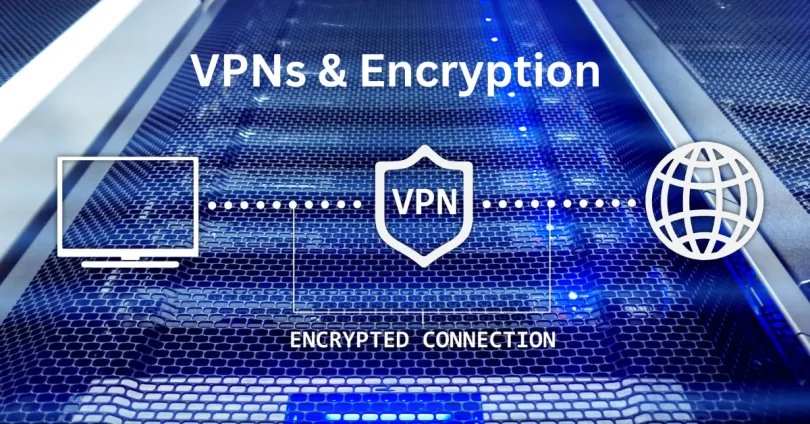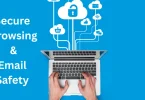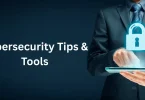In today’s digital world, online security has become more important than ever before. Every day, we share personal information, make transactions, and communicate through the internet. However, the convenience of online activities comes with its own set of risks. Cyber threats, data breaches, and surveillance are all potential dangers that we face while browsing. Thankfully, there are powerful technologies designed to protect our online privacy: VPNs and Encryption.
A VPN, or Virtual Private Network, acts as a shield that secures your internet connection by encrypting your data and masking your online identity. Encryption, on the other hand, is the process of converting data into a secure format that can only be read by authorized parties. Together, VPNs and encryption provide a robust defense against hackers, data snoopers, and unwanted surveillance, ensuring your personal information remains safe.
Whether you’re using public Wi-Fi, accessing sensitive accounts, or browsing privately, understanding how VPNs & Encryption work together can help safeguard your digital life.
The Importance of Online Privacy and Security
In a world where personal data is a valuable commodity, ensuring your online privacy and security is crucial. Hackers, advertisers, and even governments are constantly looking for ways to track and access your online activities. Without the proper tools, your personal information is vulnerable to theft and misuse. This is where technologies like VPNs & Encryption play a vital role in keeping you safe.
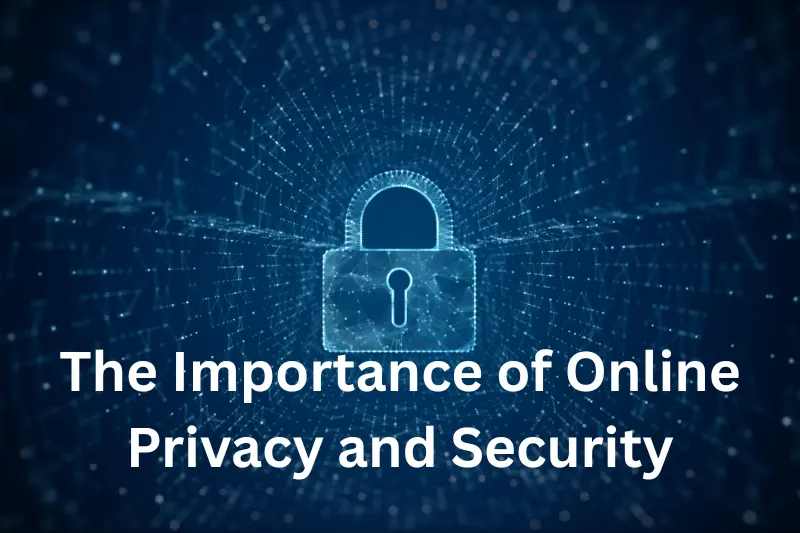
- Protection from hackers: Public networks, like Wi-Fi in coffee shops or airports, are prime targets for hackers. With a VPN and strong encryption, your data is encrypted, making it nearly impossible for hackers to intercept.
- Safeguarding sensitive data: Whether you’re shopping online, accessing your bank account, or sharing confidential information, encryption ensures that only authorized individuals can access your data.
- Preventing tracking: Many websites and online services track your behavior for advertising and profiling purposes. A VPN hides your IP address, making it harder for these entities to follow your activities.
- Bypassing censorship: In some regions, internet access is restricted or censored. A VPN can help you bypass these barriers, giving you unrestricted access to information and services.
What is a VPN?
A Virtual Private Network (VPN) is a tool that creates a secure connection between your device and the internet. By connecting to a VPN server, your internet traffic is routed through an encrypted tunnel, ensuring that anyone trying to intercept your data cannot access it.
- Private browsing: VPNs mask your IP address, allowing you to browse the internet without revealing your location or identity.
- Bypass geo-restrictions: VPNs are commonly used to access content that may be restricted in certain countries, such as streaming services or websites.
- Encryption for security: A VPN encrypts your data, making it unreadable to anyone trying to intercept it. This ensures that your sensitive information is protected, especially on unsecured networks.
Types of VPNs
There are different types of VPNs designed for various use cases. Understanding these types can help you choose the right one for your needs.
- Remote Access VPN: This type allows individual users to connect to a private network securely over the internet. It is commonly used by businesses to allow employees to work remotely.
- Site-to-Site VPN: Often used by large organizations, this type of VPN connects entire networks securely, allowing offices in different locations to communicate safely.
- Mobile VPN: Designed for mobile users, this VPN allows secure connections on smartphones and tablets, even when switching between networks.
What is Encryption?
Encryption is a process that converts plain text or data into a scrambled format that can only be read by someone with the decryption key. It is one of the most effective ways to secure sensitive data and ensure privacy in the digital world.
- End-to-end encryption: This type of encryption ensures that only the sender and recipient of a message can read the contents. Even if the data is intercepted, it remains unreadable without the decryption key.
- Symmetric vs. Asymmetric Encryption: Symmetric encryption uses the same key for both encryption and decryption, while asymmetric encryption uses a public key to encrypt data and a private key to decrypt it.
- Data encryption at rest and in transit: Data encryption ensures that your information remains safe both when it’s stored on a device (at rest) and when it’s being transmitted over the internet (in transit).
How VPNs & Encryption Work Together
The combination of a VPN and encryption creates a multi-layered defense system that makes it nearly impossible for hackers or unauthorized parties to access your data.
- Secure tunneling: When you connect to a VPN, your internet traffic is routed through a secure tunnel, which is encrypted to protect your data from being intercepted by anyone on the same network.
- Private communication: Encryption ensures that even if someone were to intercept your data within the VPN tunnel, they would not be able to read it without the decryption key.
- Data integrity: Encryption helps ensure that your data is not tampered with during transmission. If the data is altered in any way, it becomes unreadable, alerting you to a potential security breach.
Benefits of Using VPNs & Encryption
The integration of VPNs & Encryption offers numerous benefits for individuals and businesses looking to protect their online privacy and security.
- Enhanced security on public Wi-Fi: Public Wi-Fi networks are often insecure, making it easy for hackers to intercept your data. A VPN, combined with encryption, ensures that your internet traffic is protected, even on unsecured networks.
- Protection against surveillance: Whether it’s government surveillance, corporate tracking, or malicious actors, a VPN and encryption protect your online activities from prying eyes.
- Safe access to sensitive information: When using a VPN, especially with encryption, you can safely access sensitive data, such as online banking accounts or health records, without worrying about cyber threats.
- Improved online anonymity: VPNs mask your IP address, making it harder for websites and online services to track your browsing habits. Encryption further ensures that your online activities are protected from prying eyes.
How to Choose the Right VPN & Encryption for Your Needs
Choosing the right VPN and encryption method is crucial to ensuring the highest level of security. Here are some factors to consider when making your decision:
1. Encryption Standards
Look for a VPN that uses strong encryption standards, such as AES-256, which is considered highly secure. This ensures that your data is protected by the latest encryption protocols.
2. VPN Server Locations
Consider a VPN with a wide range of server locations. This allows you to connect to servers in different regions and access geo-restricted content while maintaining your privacy.
3. Speed and Performance
While security is essential, it’s also important to consider the performance of the VPN. Look for a VPN that offers fast connection speeds without compromising security.
4. Device Compatibility
Ensure that the VPN you choose is compatible with the devices you use, whether it’s a desktop, laptop, smartphone, or tablet. Some VPNs also support routers, allowing you to protect all devices connected to your home network.
5. No-Log Policy
A trustworthy VPN should have a strict no-log policy, meaning it does not store any data on your browsing activity. This ensures that your privacy is fully maintained.
6. Ease of Use
The VPN should have a user-friendly interface, making it easy to connect to a secure server and enable encryption with just a few clicks.
Common Myths About VPNs & Encryption
Despite their popularity, there are many myths surrounding VPNs and encryption. Let’s take a look at some common misconceptions.
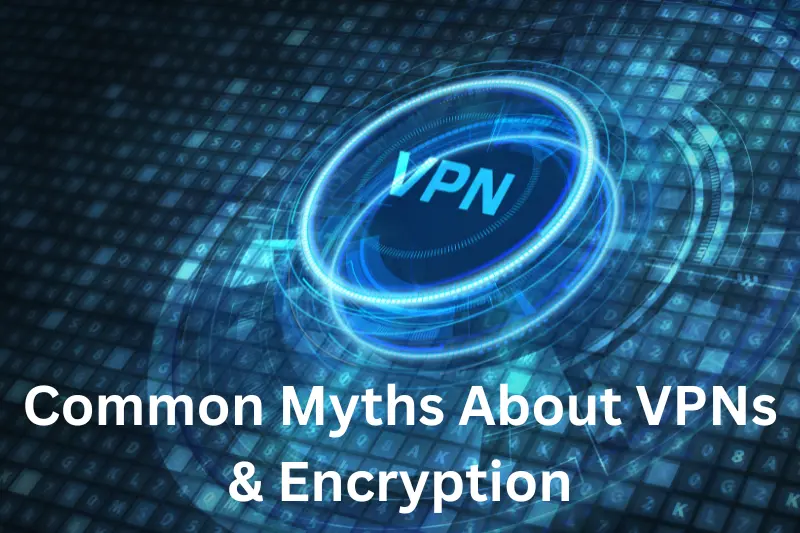
- VPNs make you completely anonymous: While VPNs enhance privacy, they do not make you entirely anonymous. Other factors, such as cookies and browsing habits, can still reveal your identity.
- Encryption slows down your connection significantly: While encryption does add a layer of processing to your data, modern VPNs use optimized encryption protocols that have minimal impact on connection speed.
- Encryption is only necessary for sensitive data: Encryption should be used for all online activities, not just when accessing sensitive information. It provides an added layer of protection against potential threats.
One read, and you’ll see things differently!
Tech for Good Impact: Real Stories of Positive Change
Powerful interviews with Creators and Founders; Who Inspire
Startups to Watch: The Future of Innovation Awaits
Tech Innovations & Case Studies: Revolutionizing the Future
Conclusion
As online threats continue to evolve, the need for strong security measures becomes even more critical. VPNs & Encryption work hand-in-hand to offer a robust solution for protecting your online privacy and security. Whether you’re browsing the internet, conducting sensitive transactions, or simply looking to maintain your anonymity online, using a VPN combined with strong encryption can help safeguard your digital presence. The next time you connect to the internet, ensure you’re doing so with the utmost protection by leveraging the power of VPNs & Encryption. VPNs & Encryption are not just tools; they are essential components of a secure online experience.
FAQs
What is the role of VPNs & Encryption in online security?
VPNs & Encryption help protect your online privacy by securing your internet connection. A VPN masks your IP address and encrypts your data, making it difficult for hackers or unauthorized parties to access your information.
How do VPNs & Encryption keep my data safe?
VPNs & Encryption work together to encrypt your data, ensuring that even if it’s intercepted, it remains unreadable. A VPN hides your online activities, and encryption adds another layer of security, making your data secure from prying eyes.
Do I need both VPNs & Encryption for full protection?
Yes, combining a VPN and encryption provides optimal protection. The VPN hides your identity and location, while encryption ensures that your data is secure, making it much harder for cybercriminals to access your personal information.
Can VPNs & Encryption protect me on public Wi-Fi?
Absolutely. Using a VPN with encryption on public Wi-Fi ensures that your data is encrypted and your connection is secure, protecting you from hackers who may try to intercept your information on unsecured networks.
Are VPNs & Encryption easy to set up for beginners?
Most VPN services come with simple setup guides that make it easy for beginners to start using them. Encryption is usually enabled by default in many VPNs, so once you’re connected to a VPN, your data is automatically encrypted.

